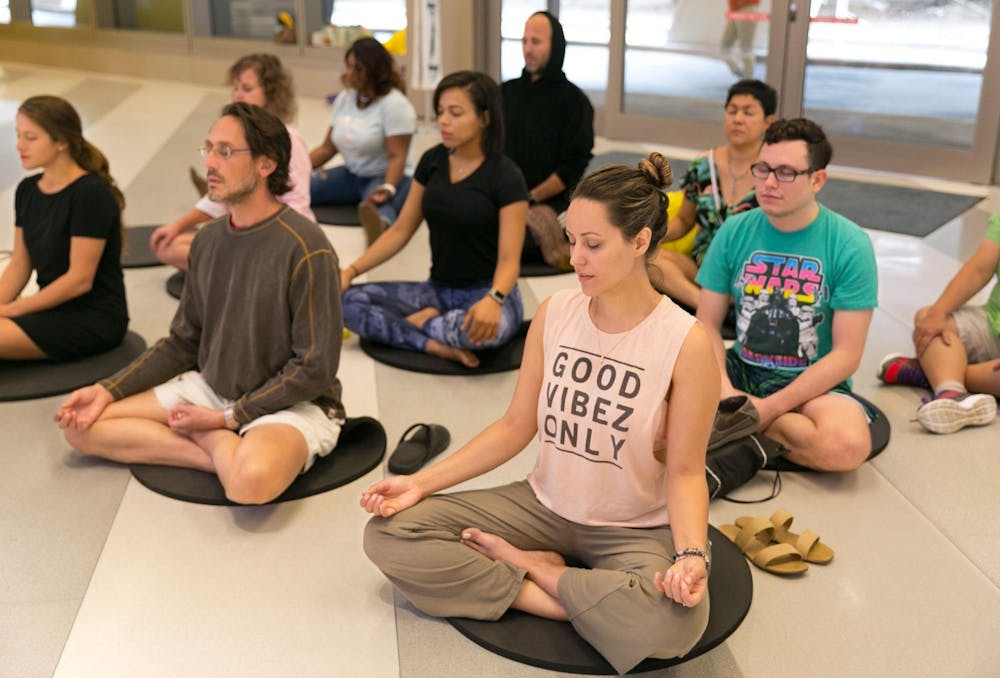Historic job losses, forced isolation and deaths caused by COVID-19 have understandably stirred a great deal of anxiety in many Americans. The Kaiser Family Foundation, a California-based health care nonprofit, released a survey last week reporting that 45% of American adults say the pandemic has affected their mental health with 19% saying it has had a major effect.
When staying at home every day, it’s easy to fixate on all the bad things happening in the world.
In times like these, it’s important to remember to balance despair and gratitude. We should not shy away from expressing our frustration with all that is going wrong. However, for those like myself whose lives have not been upended by tragedy from having a loved one infected with COVID-19, this pandemic is also a reminder that there is a lot to be grateful for.
To better practice gratitude we must practice mindfulness. This is the ability to accept painful thoughts and feelings in a balanced way. In these uncertain times, this balance can be achieved by learning to block out panic and live in the present by thinking about what we do have.
We should be grateful for modern technology that allows us to maintain relationships and modern medicine that increases the effectiveness of medical care. And those of us with more time during quarantine should be grateful for the chance to reflect on our lives.
There is no shortage of things IU students have to be disappointed and stressed about: ruined summer plans, final college semesters cut short and half of a semester’s worth of coursework to finish virtually with still no pass/fail grading option.
But we have to remind ourselves of what is still right in our lives.
Psychotherapist Beverly Engel wrote in Psychology Today that COVID-19 fears can cause us to panic, obsess and fall into negative habits. She advocates for practicing mindfulness using a relaxation technique called grounding, which involves focusing attention on nearby physical stimuli.
The goal of grounding is to shift one's attention away from negative feelings toward the external world. After completing grounding exercises most people report that they feel more present and in control of their lives, Engel wrote.
A sense of gratitude toward even the smallest things can help prevent negative spirals and contribute to living a more present life.
I have to remind myself to practice mindfulness and to focus on the things that are within my control. I try to regulate my intake of the usually disheartening COVID-19 news coverage and try to stay physically active. I also find it helpful to stay connected with friends and family over Zoom video calls. Instead of endlessly worrying about my grandparents, who are in their 80s and live in New York, the main epicenter of COVID-19 in the U.S., I call them as often as I can.
We cannot take the luxuries of modern technology for granted. The Americans who experienced the 1918 influenza pandemic had nowhere near the same ability to stay connected as we do today.
Although COVID-19 has challenged the capabilities of modern medicine, we are still better equipped to minimize a pandemic’s toll on human life than at any other time in history. The effectiveness of medical care for respiratory diseases has improved greatly since 1918. The invention of the first mechanical ventilator in 1928 made it possible to develop modern ventilators for COVID-19 patients.
However, this level of care still comes at too high of a cost for millions of uninsured Americans. As the medical bills for the hospitalization of a COVID-19 patient could cost uninsured Americans up to $75,000, according to a recent analysis by the independent nonprofit FAIR Health.
As with any experience that bluntly reminds us of our own mortality, it’s good to have time to pause for reflection on the importance of your current personal relationships. It also gives us time to appreciate the little things, such as walking your dog, that add to the splendor of life.
Gratitude should be coupled with hope. But hope in the face of this challenge is difficult to have. The Trump administration warned Monday that coronavirus outbreaks in some parts of the country will continue to get worse.
Hopefully, we can get through this pandemic easier if we remember to always stay grounded in the present and have more gratitude for the little things.
Ian Nowlin (he/him) is a sophomore studying law and public policy. He has minors in Spanish and Arabic.






